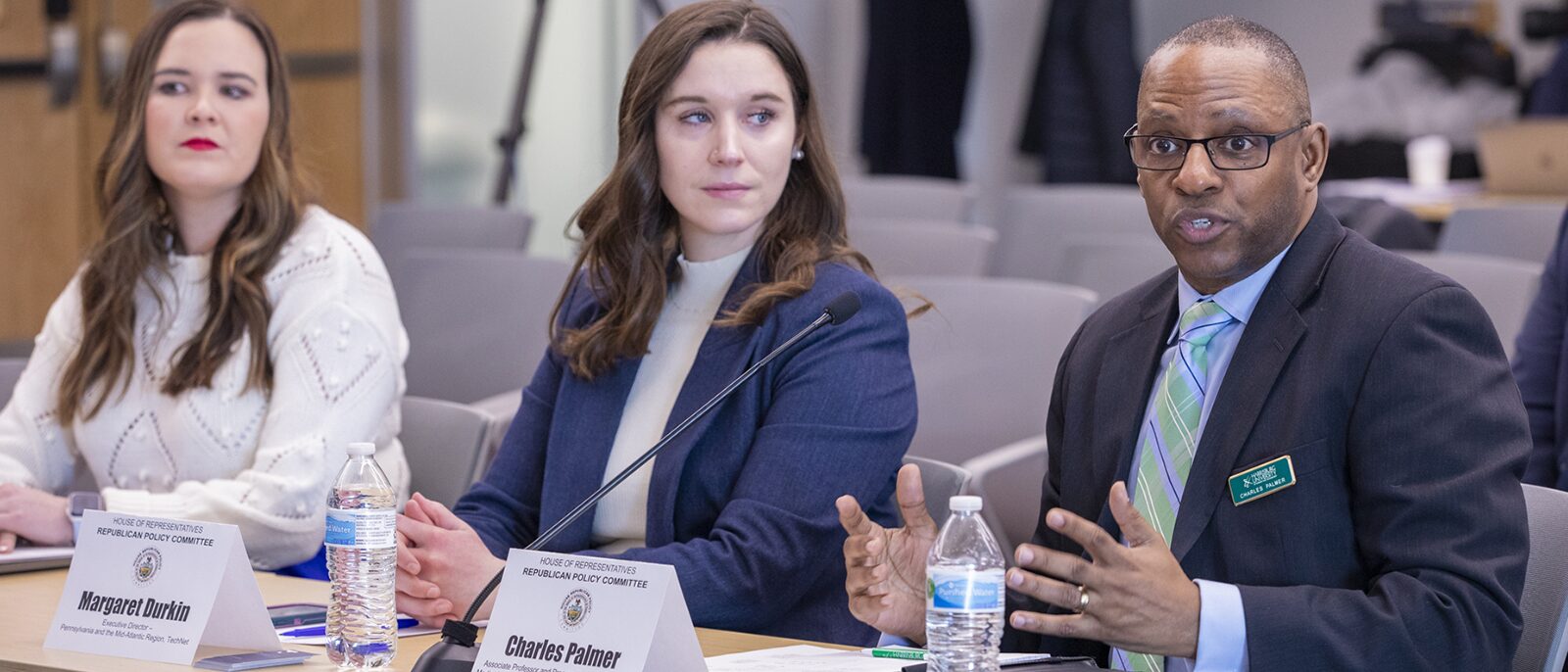On Wednesday, February 7, the Pennsylvania House Republican Policy Committee held a public hearing entitled, “Navigating the Future of AI.” The hearing was led by Chairman Joshua D. Kail (R-Beaver/Washington) and other lawmakers within the GOP Policy Committee.
“As we seek to better understand the implications of AI technology, it was essential that our committee host a public discourse with experts,” said Chairman Kail. “We need to be educated, well-versed, and poised to take advantage of utilizing AI to our benefit while also setting guardrails to prevent misuse. This may have been our first hearing on AI, but it certainly won’t be the last.”
Harrisburg University of Science and Technology served as the host location for this hearing. Dr. Eric Darr, president of Harrisburg University, welcomed the attendees to the UPMC Health Sciences Tower, located at 222 Chestnut Street in Harrisburg, Pennsylvania. Dr. Darr remarked, “We at Harrisburg University appreciate the opportunity to host this interesting conversation and look forward to an exciting morning. “You will hear about what artificial intelligence is capable of today and where we see that headed in the future, including emerging technologies in the AI space.”
Harrisburg University’s Charles Palmer – Associate Professor and Program Lead for Interactive Media, and Executive Director for Advanced Entertainment & Learning Technologies – was asked to attend the hearing and provide testimony on the subject of artificial intelligence. In his remarks, Palmer discussed topics such as key advancements and applications, ethical considerations and challenges, and the preparation of policy recommendations.
“While generative AI stands as a testament to human ingenuity, offering new ways to solve complex problems, it also challenges us to reflect deeply on the essence of creativity, the value of human versus machine-generated contributions, and the integrity of our public discourse. Recognizing that developing responsible AI necessitates a thorough understanding of the possible issues, limitations, or unintended consequences, we are reminded of the importance of proceeding with caution and conscientiousness.”
The hearing also included remarks from Margaret Durkin, Executive Director for TechNet in Pennsylvania and the Mid-Atlantic Region, and Madison Gooch, Vice President of watsonx at IBM. Video from the “Navigating the Future of AI” event is available at the PA Republican Policy Committee website.
The timing of this hearing is noteworthy. In January 2024, Pennsylvania Governor Josh Shapiro announced that the Commonwealth Office of Administration will oversee a pilot program to adopt generative AI – ChatGPT Enterprise specifically – into the workplace in PA state agencies. According to the governor’s office, the goal is to demonstrate “an employee-centered approach that balances innovation with safety, security, and privacy.”
The hearing sought to discuss the topic of artificial intelligence and its role in our everyday lives, while also seeking authoritative commentary on how to ensure its responsible use and advancement. Professor Palmer effectively summarized humanity’s current slate of challenges, opportunities, and needs when it comes to working alongside AI: “As we stand on the brink of this new era, let us commit to harnessing the potential of generative AI responsibly, ethically, and inclusively, ensuring that its benefits are realized while its challenges are thoughtfully addressed.”
ABOUT HARRISBURG UNIVERSITY OF SCIENCE AND TECHNOLOGY
Harrisburg University is accredited by the Middle States Commission on Higher Education and is a private, nonprofit university offering bachelor’s and graduate degree programs in the fields of science, technology, and mathematics. For additional information about the University’s affordable, demand-driven undergraduate and graduate programs, please call 717-901-5146 or email Connect@HarrisburgU.edu. Stay updated by following Harrisburg University X, Instagram, and Facebook.
